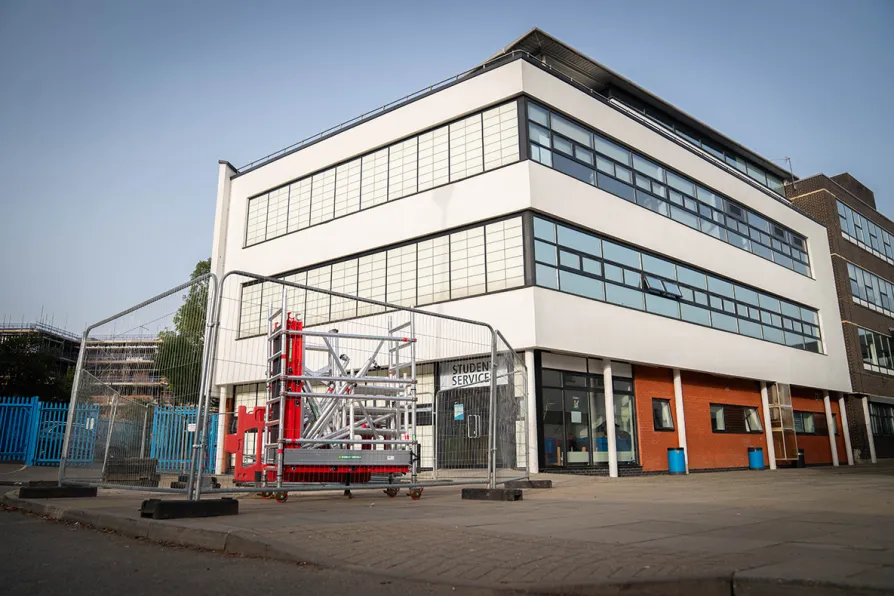
 General view of Park View School in London, which has been affected with sub-standard reinforced autoclaved aerated concrete (Raac), September 6, 2023
General view of Park View School in London, which has been affected with sub-standard reinforced autoclaved aerated concrete (Raac), September 6, 2023
MINISTERS were urged today to prioritise the removal of all dangerous substances from school buildings, nearly two years after more than 100 were forced to close while unsafe concrete was taken out.
The National Education Union (NEU) issued the call after School Standards Minister Catherine McKinnell declined to indicate when schools would be free of reinforced autoclaved aerated concrete (Raac).
General secretary Daniel Kebede said: “Nothing is more important than the safety of children and staff in schools.
“Years of neglect can’t be put right overnight, but that makes it even more important that materials like Raac and asbestos are safely managed in the meantime, which is an additional burden on schools.
“We urge the government to act swiftly to ensure that all dangerous substances are prioritised for removal from school buildings.”
The government has announced that around £1.2 billion — part of funding packages announced in last year’s autumn Budget — will be spent on repairing crumbling schools and hospitals across the country.
Asked about Raac, Ms McKinnell told LBC radio: “We’re not over that hurdle yet and we’re not over it in the NHS either.”
“We have identified all the Raac” and there are plans for buildings to be fixed or rebuilt, she added.
More than 100 schools, nurseries and colleges across England were forced to shut down days before the autumn term in 2023 amid concerns that classrooms and other buildings containing Raac were unsafe.
According to the government, pupils at 656 schools and sixth-form colleges will benefit from a share of this year’s £470 million Condition Improvement Fund, used for projects such as fixing crumbling roofs and removing asbestos.
More than 400 hospitals, mental health units and ambulance sites will be handed £750m to tackle problems such as leaky pipes, poor ventilation and electrical issues.
Projects to deliver improvements to schools and hospital buildings will be delivered during the 2025-26 financial year, with the first upgrades to begin this summer, the government has said.
In January, a National Audit Office report estimated it would cost around £13.8bn to address the repairs and remedial work backlog in hospitals and other NHS properties in England, plus an additional £13.8bn for the school estate.













